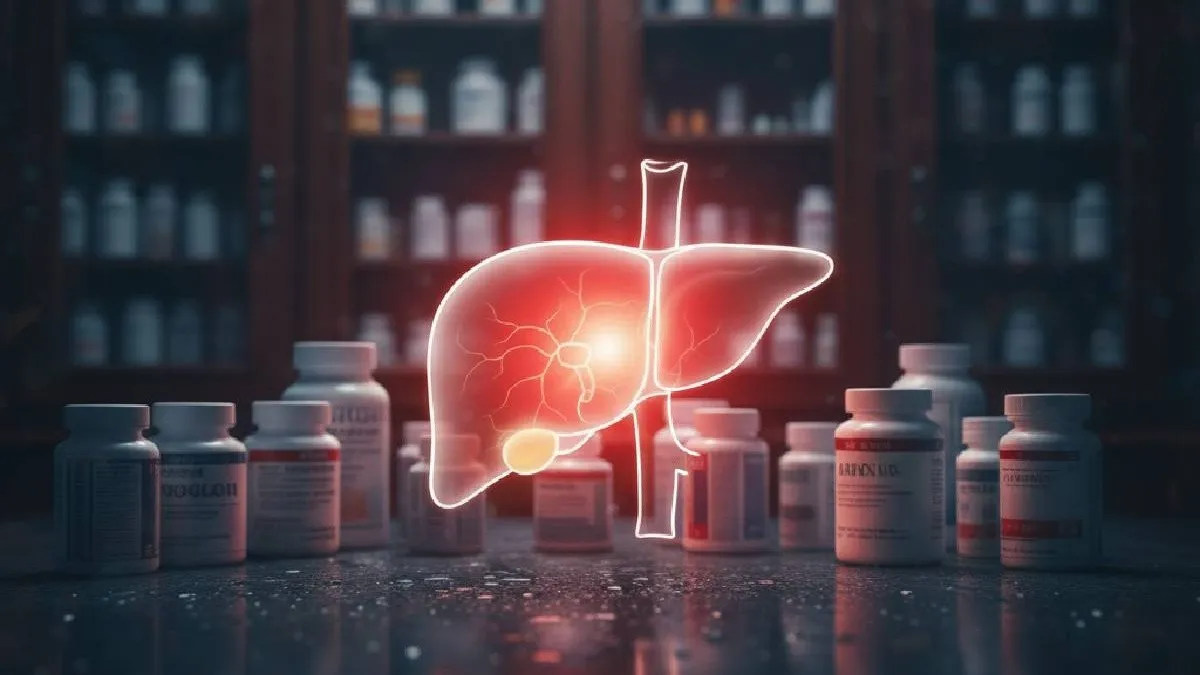The liver is a vital filter for the body, but not all medications are its allies. These are the everyday medications that, if not used correctly, can put the health of this essential organ at risk.
The liver is a vital filter for the body, but not all medications are its allies. These are the everyday medications that, if not used correctly, can put the health of this essential organ at risk.
Over-the-counter pain relievers
Medications such as paracetamol (acetaminophen) are widely used to relieve pain and fever. However, an overdose of this drug is one of the leading causes of acute liver failure. It is vital to follow the recommended dosages and not combine it with other products that also contain this drug.
Nonsteroidal anti-inflammatory drugs (NSAIDs)
Drugs such as ibuprofen, aspirin, and naproxen can cause a variety of problems, including liver damage. Although the risk is low, it increases in people who already have liver disease or who regularly consume alcohol. Long-term use of NSAIDs should always be supervised by a healthcare professional.
Some antibiotics
Certain antibiotics can cause a toxic hepatitis reaction, i.e., inflammation of the liver. Examples include amoxicillin-clavulanate, erythromycin, and some antifungals such as ketoconazole. This damage can appear days or even weeks after starting or stopping treatment.
Statins
These medications are commonly prescribed to lower high cholesterol levels. Although they are generally safe, in some cases, they can increase liver enzymes, an indicator of liver inflammation. The doctor should monitor the patient’s liver function when prescribing statins.
Anticonvulsants
Drugs used to treat epilepsy, such as phenytoin, carbamazepine, and valproate, can be hepatotoxic. The risk of liver damage varies depending on the type of drug and dose, so close medical monitoring is essential during use.
Antidepressants and Antipsychotics
Some medications used in mental health treatment, such as certain tricyclic antidepressants, fluoxetine, and sertraline, have been linked to liver damage. The same is true for certain antipsychotics. Monitoring liver function is important in patients receiving this type of therapy.
Oral contraceptives
The hormones in oral contraceptives can cause a type of liver damage known as cholestasis, which is characterized by a reduction in the flow of bile from the liver. This side effect is rare, but the risk may be increased in women with a history of liver problems.
Tuberculosis medications
Treatment for tuberculosis often includes a combination of drugs such as isoniazid and pyrazinamide, which are known for their potential to cause hepatotoxicity. For this reason, patients receiving this treatment require close monitoring of their liver function.
Some supplements and herbs
The belief that “natural” products are always safe is a misconception. Herbs such as kava, comfrey, and chaparral, as well as certain weight-loss supplements, may contain substances that cause serious liver damage. It’s always crucial to do your research and consult a doctor before taking any supplement.























+ There are no comments
Add yours